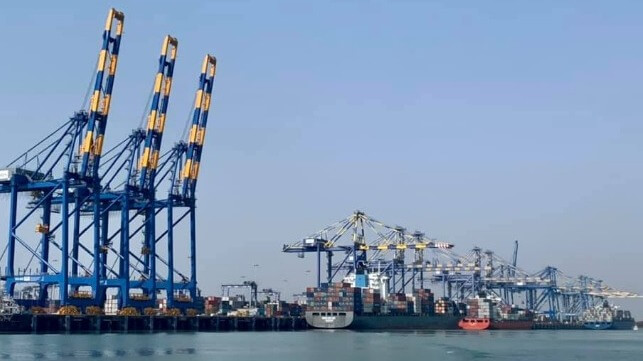Indian Dockworkers Set Date for Strike After Three Years of Negotiations

Globally port workers have expressed their frustrations during contract negotiations and called for significant wage increases after working through the pandemic to keep global commerce functioning. The latest problems emerged in India where the six labor unions that represent workers across the 12 major seaports are laying the groundwork for a nationwide strike scheduled to begin in less than two weeks on August 28 and to run until terms are reached for a new contract.
The Indian unions follow the path taken around the world. In Europe Germany and Belgium for example have recently experienced labor stoppages at the ports. In the United States, last year West Coast longshoremen staged a work slowdown after a year of contract negotiations while on the East Coast, the International Longshoremen’s Association is threatening an October 1 strike saying it will not extend the deadline for a new contract. At the beginning of the week, operators of pilot boats and staff that oversee the movement of vessels will stop work for 48 hours in Fremantle, Australia.
According to the joint statement for the six labor organizations in India, the port labor contracts expired in December 2021. They have had seven rounds of negotiations over the past 331 months but are at a “standstill position.” No new talks are scheduled, but the government may intervene in the next two weeks and at least compel the sides back to the negotiating table.
The issues and demands from the union sound remarkably similar. The Indians are demanding pay increases, benefits, holiday pay, and addressing productivity efforts. The unions are also calling for the agreements to be retroactive to January 2022 when the next contract should have begun.
India’s labor relations are often contentious with the unions now accusing the Ministry of Shipping of impeding an agreement. They said the Ministry has a “lethargic attitude,” while citing changes in the regulations implemented early in 2021. The unions allege that the government centralized its authority while saying the goal was to create greater autonomy in port operations. They contend that government guidelines and the primary reason for the impasse.
The looming strike comes as India is working to expand its global exports and role as a manufacturer. The government is leading efforts to expand and invest in the ports and to attract more container services. Reports indicate that cargo volume overall is up more than four percent in 2024 with containers experiencing a nearly 10 percent increase.
After two days of meetings, the labor groups issued their joint declaration warning of the strike. They have also made the necessary filings with the port authorities and government for the action to proceed.














